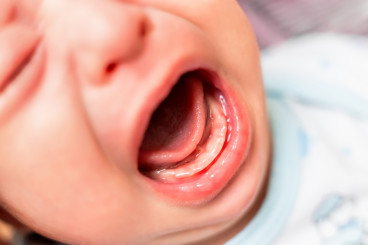Maintaining Oral Health: Tips for Between Dental Cleanings
Regular dental cleanings are crucial for keeping your teeth and gums healthy, but what you do in between those visits is equally important. While professional cleanings remove stubborn plaque and tartar buildup, your daily oral hygiene routine plays a significant role in preventing tooth decay, gum disease, and other dental issues. In this article, we'll explore practical tips and advice to help you maintain optimal oral health between dental cleanings.

Brush Properly and Regularly
Brushing your teeth is the foundation of good oral hygiene, but it's essential to do it correctly. Use a soft-bristled toothbrush and fluoride toothpaste, and brush for at least two minutes, twice a day. Proper technique involves gentle circular motions, ensuring you clean all surfaces of your teeth, including the front, back, and chewing surfaces. Don't forget to brush your tongue as well, as it can harbor bacteria that cause bad breath.
Floss Diligently
Flossing is often overlooked, but it's crucial for removing plaque and food particles from areas that your toothbrush can't reach. Floss at least once a day, gently guiding the floss between your teeth and along the gumline. Proper flossing technique can help prevent gum disease and tooth decay in those hard-to-reach areas.
Use Antimicrobial Mouthwash
Incorporating an antimicrobial mouthwash into your oral care routine can provide an extra layer of protection against harmful bacteria. Look for mouthwashes that contain ingredients like cetylpyridinium chloride or essential oils, which can help reduce plaque buildup and freshen your breath.
Maintain a Balanced Diet
Your diet plays a significant role in your oral health. Limit sugary and acidic foods and drinks, as they can erode tooth enamel and contribute to tooth decay. Instead, focus on consuming a balanced diet rich in fruits, vegetables, whole grains, and lean proteins, which provide essential nutrients for healthy teeth and gums.
Stay Hydrated
Drinking plenty of water is not only good for your overall health but also beneficial for your oral health. Saliva production is essential for neutralizing acid and washing away food particles, and staying hydrated can help maintain optimal saliva flow.
Quit Smoking and Tobacco Use
Smoking and tobacco use are significant risk factors for oral health problems, including gum disease, tooth discoloration, and oral cancer. If you smoke or use tobacco products, quitting is one of the best things you can do for your overall health, including your oral health.
Manage Stress
Stress can have a negative impact on your oral health by increasing the risk of teeth grinding (bruxism), dry mouth, and gum disease. Practice stress management techniques like exercise, meditation, or deep breathing exercises to help reduce stress levels and protect your oral health.
Use Dental Products with the ADA Seal
When purchasing dental products like toothpaste, floss, or mouthwash, look for the American Dental Association (ADA) Seal of Acceptance. This seal indicates that the product has been evaluated for safety and effectiveness by the ADA and meets their standards.
Schedule Regular Dental Cleanings
While maintaining good oral hygiene at home is essential, it's also crucial to schedule regular dental cleanings. Professional cleanings help remove hardened plaque and tartar buildup that can lead to gum disease and tooth decay if left untreated. Most dental professionals recommend getting a professional cleaning every six months, but your dentist may recommend more frequent visits based on your individual needs.
By following these tips and maintaining a diligent oral care routine, you can help ensure your teeth and gums stay healthy between dental cleanings. Remember, prevention is key when it comes to oral health, and taking small steps every day can make a big difference in maintaining a beautiful, healthy smile for years to come.
The following codes cover professional cleanings, fluoride treatments, sealants, and space maintainers for children, which are all part of preventive dental care aimed at maintaining good oral health.
D1110 - Prophylaxis (routine adult cleaning)
D1120 - Prophylaxis (child cleaning)
D1206 - Topical fluoride varnish
D1208 - Topical application of fluoride
D1351 - Sealant - per tooth
D1510 - Space maintainer - fixed, unilateral
D1516 - Space maintainer - fixed - bilateral, maxillary
D1517 - Space maintainer - fixed - bilateral, mandibular
Find Affordable Dental Care with the Dr. BestPrice Dental Auctions
Looking for affordable dental care options? Check out the Dr. BestPrice dental auction service, where you can find low-cost dental treatments, dental discounts, and budget-friendly dental savings in your area. Say goodbye to expensive dental bills and hello to quality care without compromising your finances. Visit today and find a cheap dentist near you that fits your needs and budget.



